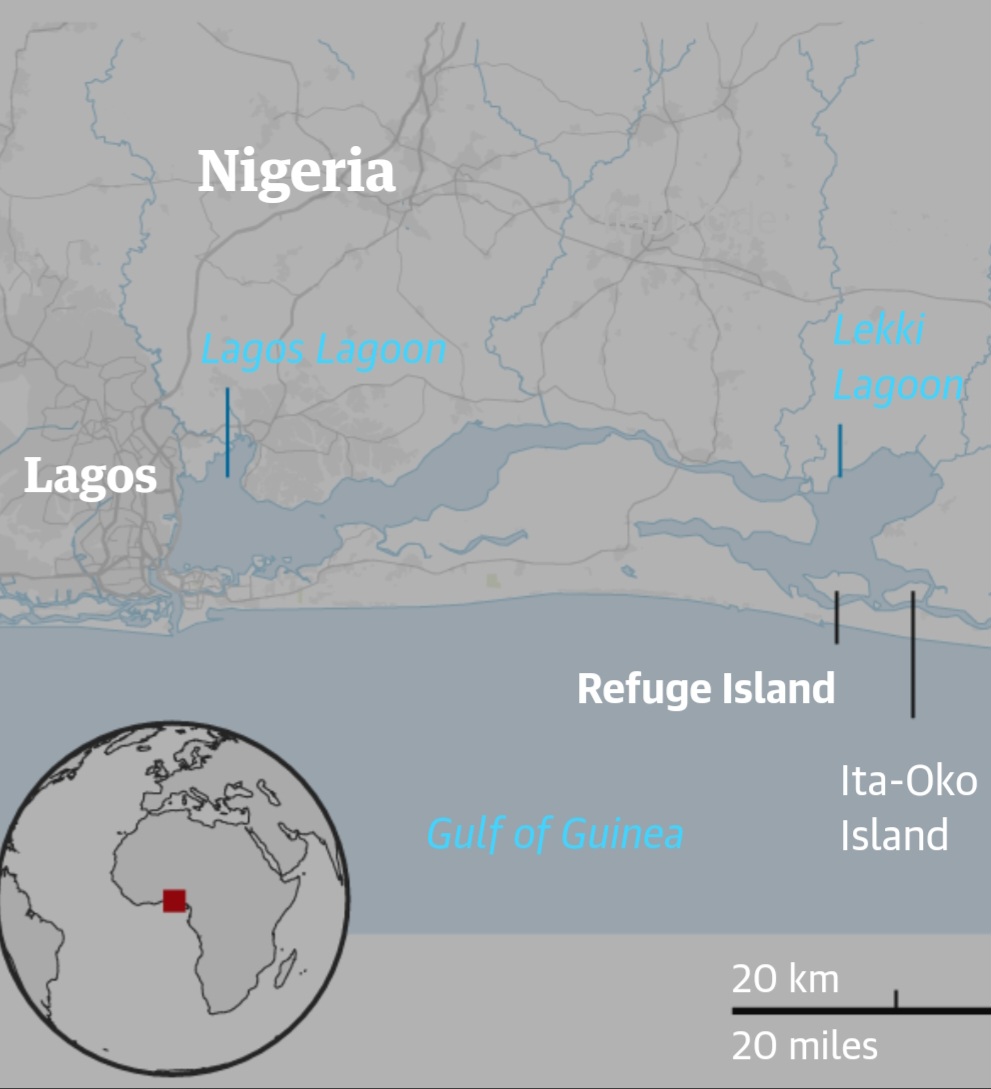For the 2,000 residents of Refuge Island, life remains a daily struggle, far removed from the economic transformation sweeping across Lagos. The island, named after enslaved people who fled Western Nigeria in the 19th century, is a stark contrast to the high-rise luxury developments reshaping the city’s skyline.
Located on the eastern fringes of Lagos, Refuge Island lacks electricity, hospitals, proper roads, and even clean water. Its residents—primarily fishers and subsistence farmers—rely on costly fuel-powered generators for light and use makeshift water filters to purify water from the Lekki Lagoon, which also serves as an open defecation site due to the absence of proper sanitation facilities.
A Lost Opportunity for Development?
Architect and former Labour Party governorship candidate, Gbadebo Rhodes-Vivour, believes Refuge Island holds untapped tourism potential. With its white sand beaches, coconut trees, and serene environment, it could be transformed into a cultural hub where artists, local craftsmen, and eco-tourism thrive.
However, he argues that Lagos’ development model excludes poor communities, prioritizing luxury projects over inclusive growth. “The vision is to look like Dubai,” he says, “but with a 70% poverty rate, most people cannot afford to live in Dubai-like conditions… development needs to be a lot more even.”
Political Neglect and Election-Day Politics
Despite being ignored by successive governments, the ruling All Progressives Congress (APC) has consistently won elections on the island since 1999. Residents claim that senior politicians have never visited, not even during campaign seasons. Instead, political parties reportedly send food and money to residents on the eve of elections to secure votes.
The Struggle for Education and Healthcare
Refuge Island’s only school, which serves nursery and primary-age children, has seen classrooms shut down due to collapsing roofs. For secondary education, students must take a boat ride to another island, a daily challenge for families already struggling with economic hardships.
The only healthcare centre closed several years ago, leaving residents to travel long distances for medical care. With no functioning hospital, pregnant women, the elderly, and the sick are especially vulnerable.
A Glimmer of Hope?
In recent years, middle-class Lagosians seeking a tranquil retreat from urban chaos have started venturing into communities like Refuge Island. Some resort owners and city dwellers have initiated small-scale interventions, offering hope that grassroots efforts could bring much-needed improvements.
Yet, without government intervention and sustainable development policies, Refuge Island risks remaining a forgotten outpost, trapped between Lagos’ rapid modernization and its deepening inequalities.

